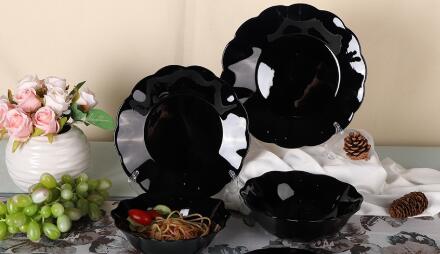High-end handmade glass cup for European and American market
Pulished on Jul. 11, 2024Glassware has long been a staple in kitchens and dining rooms around the world, and glass cups are among the most commonly used items. However, not all glass cups are created equal. The primary distinction lies in whether they are machine-made or handmade.

Machine-made Glass Cup
Machine-made glass cups are produced in large quantities using automated processes. This method ensures uniformity, cost-efficiency, and quick production times. Every cup looks identical, which is advantageous for businesses that require large, consistent inventories, like the beer mug, engraved whisky glass cup, glass jug etc..

Handmade Glass Cup
In contrast, handmade glass cups are crafted by skilled artisans who use traditional techniques, like the wine stem cup. Each piece is unique, showcasing slight variations in shape, size, and design. The artistry involved means that handmade glass cups often feature intricate designs and higher-quality finishes. While more time-consuming and labor-intensive, the result is a cup that exudes individuality and craftsmanship, offering a personal touch that machine-made items lack.

The Development of Chinese Glassware Industry
China has a long history of glass making, with its glassware industry evolving significantly over the centuries. Today, China is one of the world's largest producers and exporters of glassware, including both machine-made and handmade items.
The industry benefits from advanced manufacturing facilities and a rich tradition of craftsmanship. Chinese factories are known for their ability to produce high-quality glassware at competitive prices, leveraging economies of scale and efficient production methods. This makes Chinese glassware highly sought after in international markets.

Advantages of Handmade Glass Cups
1.Superior Quality: Handmade glass cups are crafted with meticulous attention to detail, resulting in higher-quality products with exceptional clarity and brilliance.
2.Customization: These cups can be customized in terms of size, shape, and design, catering to specific preferences and needs.
3.Unique Designs: Each handmade cup is unique, featuring slight variations that add to its charm and aesthetic appeal.
4.Durability: The craftsmanship involved in making handmade glass cups often results in more durable products that can withstand regular use.
5.Eco-Friendly: Handmade production methods can be more environmentally friendly, using less energy and producing fewer emissions compared to machine manufacturing.
7.Enhanced Aesthetics: The artistic designs and high-quality finishes of handmade glass cups enhance the visual appeal of any table setting.
8.Support for Artisans: Purchasing handmade glass cups supports skilled artisans and helps preserve traditional craftsmanship.

Benefits of Purchasing from Chinese Factories
1.Cost-Effectiveness: Chinese factories offer competitive pricing due to their advanced production capabilities and economies of scale.
2.Quality Assurance: Many Chinese manufacturers adhere to strict quality control measures, ensuring high-quality products.
3.Customization Options: Chinese factories often provide extensive customization options, allowing buyers to specify their desired sizes, shapes, and designs.
4.Proximity to Ports: With factories located near major ports, logistics and shipping processes are streamlined, reducing transportation costs and delivery times.
5.Industry Expertise: The Chinese glassware industry boasts decades of experience and expertise, contributing to the production of superior glass products.

In Summation
In the realm of glassware, handmade glass cups stand out for their unique charm, superior quality, and customizable options. The Chinese glassware industry, with its blend of traditional craftsmanship and modern manufacturing techniques, offers numerous advantages to buyers. By choosing handmade glass cups from Chinese factories, consumers not only acquire beautiful and durable glassware but also support the preservation of artisanal skills and benefit from cost-effective, high-quality products.









